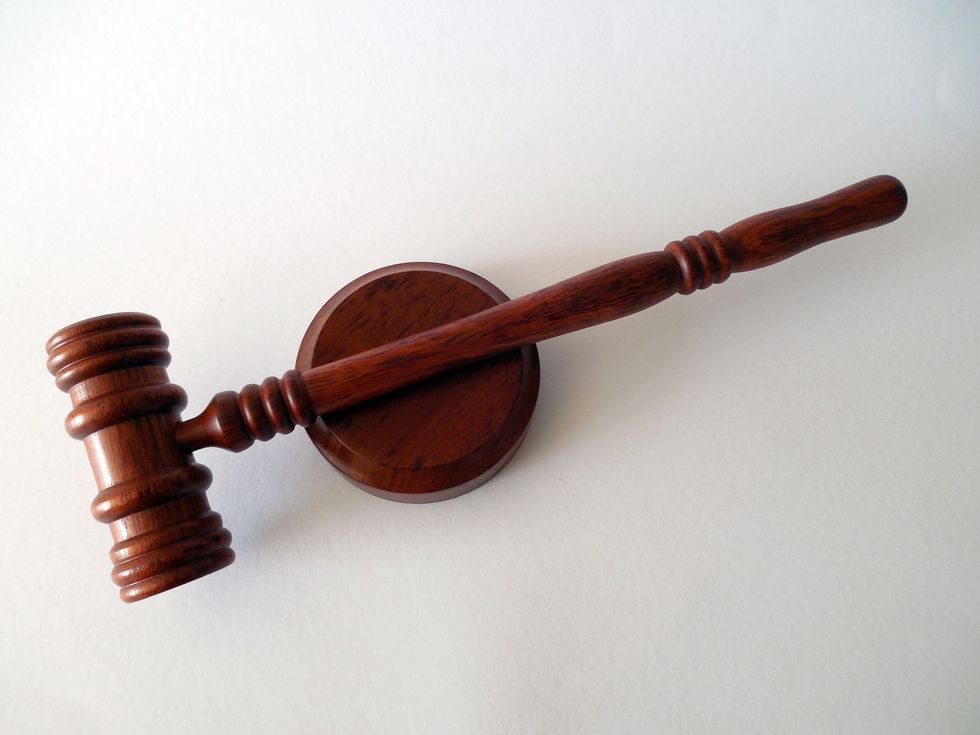There is now a formal public record containing the words "It is extremely likely that human influence has been the dominant cause of the observed warming since the mid 20th century." Not only that, but those words came from a lawyer representing Chevron, one of the large oil companies being sued by the cities of Oakland and San Francisco for their role in global climate change. This record is a product of a "tutorial" ordered and presided over by Judge William Haskell Alsup, a landmark event in the history of environmental law and policy.
While the tutorial itself is quite novel, the outcome seems to be an echo of previous hearings--particularly against big tobacco--according to Peter Frumhoff, the chief climate scientist at the Union of Concerned Scientists. In the '80s, cases against big tobacco companies began to address that smoking caused lung cancer and that cigarettes were addictive, but tobacco companies did not warn consumers. The landmark case of the time, Cipollone v. Liggett, addressed this concern and the plaintiff (Cipollone) was awarded $400,000, but an appellate court reversed the decision. Tobacco companies defended themselves in this lawsuit and similar others by arguing smokers knowingly assumed any health risks brought on by smoking by the very act of smoking. The tobacco industry was mostly successful with these arguments, until the '90s, when plaintiffs ranging from individuals to entire states slammed 'em with lawsuit after lawsuit.
Frumhoff is absolutely right about the first part of the similarity to tobacco hearings--the lawsuit filed by Oakland and San Francisco states that the defendents “borrowed the Big Tobacco playbook in order to promote their products” and that they were “promoting massive use of fossil fuels by misleading the public about global warming by emphasizing the uncertainties of climate science.”
However, there were some fairly original elements during this tutorial, mostly due to Judge Alsup's interactions with climate scientists and lawyers. Alsup appeared to ask whichever question related (however loosely) to the subject at hand he liked, sometimes baffling Theodore Boutrous, the attorney representing Chevron and leading the legal team for the oil companies, and even throwing some climate scientists off track. Some of my favorite outtakes include Alsup inducing a climate scientist from Oxford to wiggle his arms around to demonstrate how carbon dioxide molecules absorb infrared radiation, Alsup SCHOOLING Boutrous on one particular climate scientist whose work was published for the first time in 1938, and of course, that he wore a science tie with the solar system on it to the tutorial.
So, where are we now? Well, we have two milestones to celebrate. Climate science has had its day in court, and large oil companies have stated on the record that they really just can't deny climate change anymore. Where do we go? Judge Alsup has given the other companies 2 weeks since the day of the hearing to argue with anything Boutrous said before holding another hearing. Apparently, he also told them "You can't get away with sitting there in silence."
Mic. Drop.
The tutorial may be over, but the case isn't, both in terms of the actual lawsuit and the case for more hearings on climate change. As more and more people begin to understand that climate change is a very real, global problem and search for tangible solutions, I hope that people will become more conscious about two things in particular - where the energy they are using comes from, and how much energy they are using in the first place. I think its absolutely necessary to transition from fossil fuels to (hopefully minimally invasive) renewable energy sources, but I also think its important for people to be aware of how much energy their actions use, and make conscious decisions to mitigate their usage.
Gif credit: https://giphy.com/gifs/high-quality-drop-mic-vIZ0U...


















